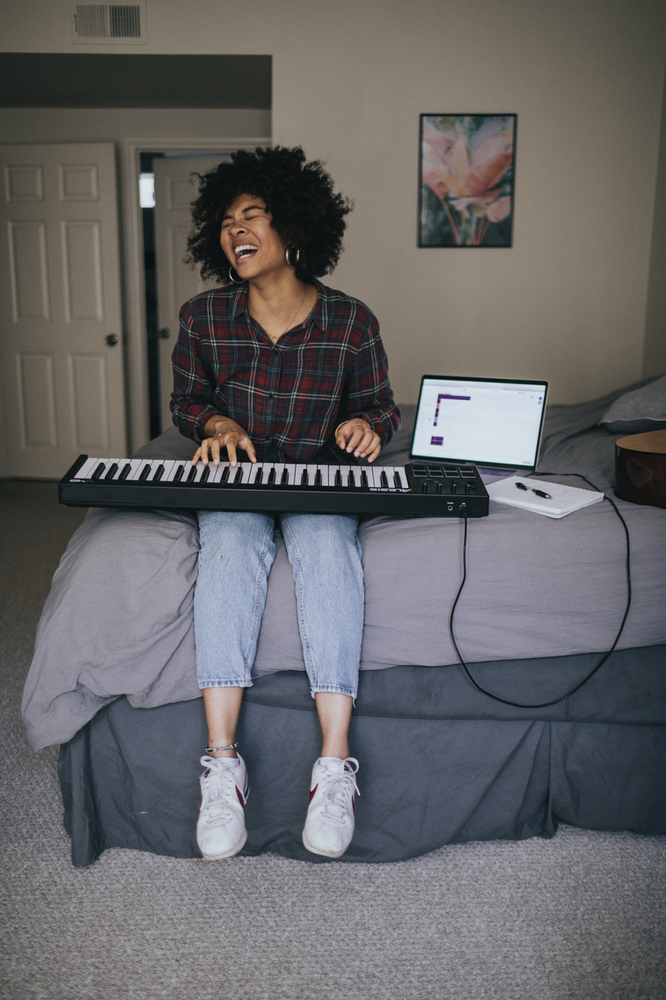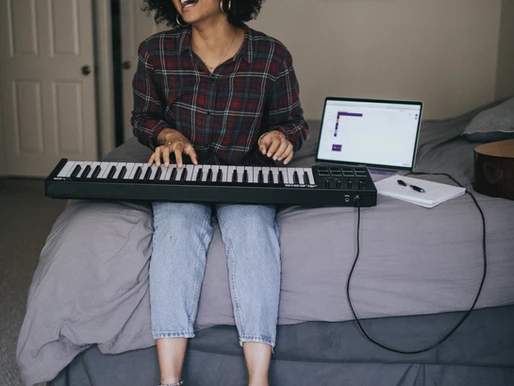Uncategorized
Scales Getting Boring? – Advice
A Beginners guide on Scales piano and how to work with them without getting tired.

The great thing about teaching beginners or children is that they can have fewer preconceptions about music practice.
Singing is fun. It is useful to get students to hear (you can play it as a teacher) and then sing the scale before they play it. The goal is for them to hear it and internalise the sound. They can sing it and then try to play what they hear, enjoying intervals and learning them intuitively.
How to get better at piano? May your students wonder…
Well, singing and playing what they hear will always help them in their learning path. As well as knowing a pattern for a scale, with tones and semitones, experiment with singing around the scale, and finding out for themselves what sounds good or not!
Rhythm

Rhythms can sometimes be hard to grasp as a beginner, making sure your pieces are in time whilst using a concoction or quavers, crotchets, semiquavers and more. By getting your student to play a scale using different rhythms will not only allow them to build on their rhythmic capabilities for their future pieces but will also maintain their attention and make scales more exciting.
You can start with dotted rhythms and then turn them upside down. You can keep it simple and make each note a minim, or you can do a mixture of rhythms and make two quavers and the next two notes as crotchets and alternate the pattern. There are many different rhythms you can incorporate in this practice to keep it entertaining.
Articulation

Articulation is another great way to keep the scales exciting. Why not make the ascending scale staccato and the descending scale legato, or play three notes staccato and the next four notes legato. This will be like a brain challenge for your students, having to focus more on their technique and concentrate on which articulation goes where rather than the notes, making it eventually more natural for them to play the scale, which should lead to them becoming off-copy.
Dynamics

Everyone (especially children) loves the opportunity to be able to bash a piano and play as loudly as possible, and this is definitely a fun way to teach scales and keep your students interested. As well as playing a regular crescendo ascending and decrescendo descending on the scale, it is also a good idea to let them (whilst at the beginning of learning the scales) allowing the student play the scale once as loudly as they possibly can and then another time as quietly as they possibly can. Or again, why not play two notes loud, two notes quiet and alternate between them. This can seem like a fun game to them rather than a dull exercise.
Different Piano Ranges

As a beginner, they spend the majority of the time using the two octaves around middle C. Therefore, it may be fun for them to experience the high end of the keyboard and the low end of it. It could be a fun idea to get your students to find the lowest C (if playing C major) and practise their scale from there. Or, alternatively, find the highest C and start their scale descending and then ascending again. It could also be fun, if they are using both hands, instead of doing one octave apart, to try and put their hands’ multiple octaves apart and discover how the sound differs.
Link The Scales

For advanced students who know all of their scales (major and minor), it can be a fun practice to link all the scales rather than play them all with stops in the middle.
How can they do this?
Let’s start for example with C major: They complete the C major scale, go up a note of that key (for C major to D), then go down four notes to reach A (which is the relative minor). Then they complete A minor, press Bflat as four down from that is F, so they’ll play the major scale which, in the key signature, contains a B flat. By working in this pattern they will find that they have reached all the notes. This can be a refreshing and fun way to revise the scales.
Although scales have this stigma of being a little dry, that definitely is not the case! Find ways to keep things exciting and stick with them because after all, scales are one of the most important functions of learning an instrument.
#pianolessonsforbeginners #pianolessonsforkids #adultpianolessons #Pianoteachers #PianoteachersLondon #pianoteachersLondon #pianoteachers #AlexMaclean

